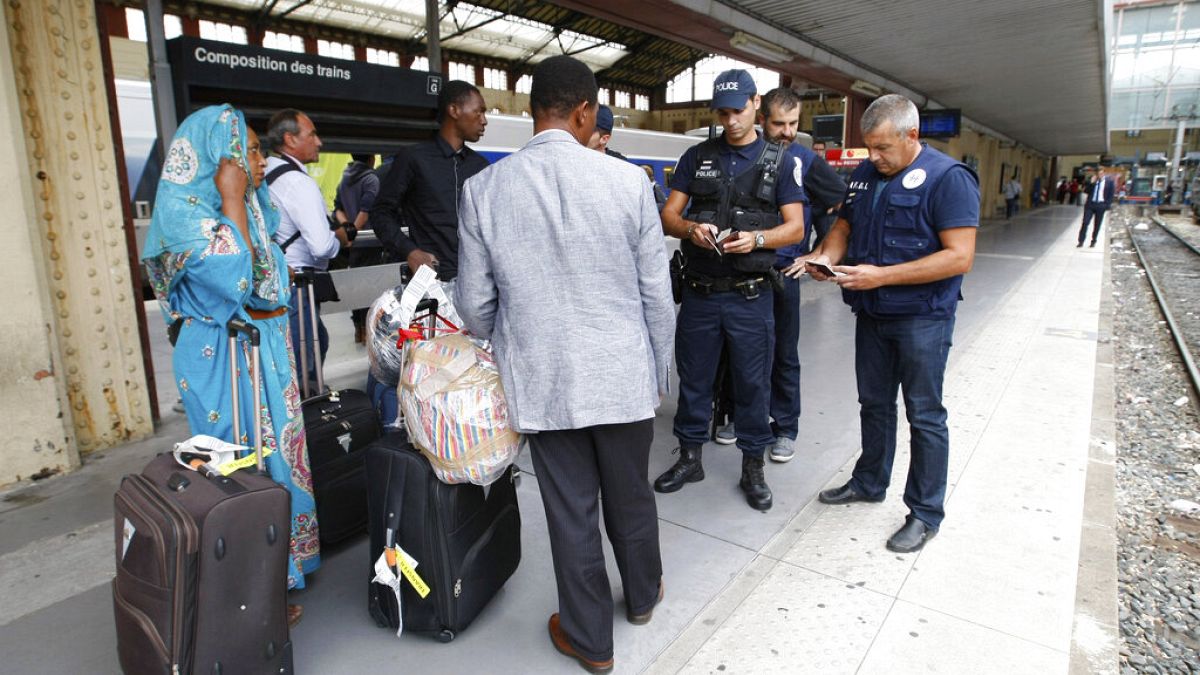Law enforcement officials across Europe continue to use racial profiling, the Council of Europe’s human rights monitoring body (ECRI) has warned.
In a report published on Wednesday, the ECRI said the practice — which sees officials act on ethnic background, skin colour, religion or citizenship rather than objective evidence — persists both in stop-and-search policing and at border controls.
“We’ve noticed that no member state of the Council of Europe is really immune when it comes to racial profiling,” Bertil Cottier, chair of the European Commission against Racism and Intolerance (ECRI), told Euronews.
Concerns over new technologies
Experts are concerned about law enforcement agencies’ plans to make extensive use of facial recognition technology. Adequate safeguards need to be introduced first, they say.
Despite the strict European framework outlined in the Artificial Intelligence Act, which came into force in August 2024, practices vary across different member states.
French police, for example, have been routinely using facial recognition on the streets for many years, and Belgium is looking into systematically introducing the controversial technology for “tracking convicted and suspected offenders”.
The Council of Europe pointed to research indicating that such technology risks misidentifying individuals.
“It is a concern for us. New technologies are always a problem when it comes to discrimination issues,” said Cottier. “We fear that if new technologies are abused then it will enhance the problem.”
For this reason, the ECRI watches over emerging technologies.
The Council of Europe has adopted a framework convention on AI and human rights.
“One committee of the Council of Europe is dealing with anti-discrimination issues and is preparing a specific recommendation on the field of AI and discrimination,” said Cottier.
Countries failing to deal with police racial profiling, CoE says
The ECRI report does not cite situations in specific countries.
However, in the past, the body has published country-specific reports.
In France, for example, the ECRI has long recommended that authorities introduce an effective system of recording identity checks by law enforcement officers.
Last year, the Council of Europe organised a round table with the French authorities, police forces and NGOs to discuss the recommendation.
“France is one country of concern when it comes to racial profiling,” said Cottier.
“But still we noticed a couple of months ago sadly that our recommendation on combating racial profiling — in particular on tracing the police officers who (incorrectly) stopped people — has been ignored so far,” Cottier added.
France’s highest administrative court ruled in 2023 that the state was failing to deal with the widely documented practice of racial profiling by the police.
NGOs have warned that the practice damages the relationship between the police and the public. So does the ECRI, which said in its report that “racial profiling generates a feeling of humiliation and injustice in society”.
“Such practices jeopardise the work of law enforcement officials who comply with the law and police ethics standards, and who are committed to combating racism and racial discrimination,” the ECRI experts wrote.
Italian government hits back against study
Italy is another country of concern.
“During our visit to Italy we noticed some cases of racial profiling within the police forces. We made a recommendation to the Italian government to take this issue seriously,” Cottier noted.
Here, racial profiling by law enforcement especially targets the Roma community and people of African descent.
An October 2024 report urged Italy to carry out an independent study to assess the level of racial profiling within its police forces.
However, the Italian government hit back against it.
Italy’s Premier Giorgia Meloni defended the “men and women who, every day, work with dedication and self-sacrifice to ensure the safety of all citizens, without distinction”.
Meanwhile, Deputy Prime Minister Matteo Salvini called the ECRI “a useless body”.
Cottier regrets this response. “They had the impression that we denounced Italy and the Italian police by saying they committed racial profiling. In fact, we just asked the Italian government to assess the problem,” he said.
It remains a delicate issue, the ECRI chair acknowledged. “We don’t want to counter the police. We know that we need them and we want to trust them. That’s why it’s sometimes very difficult to make states aware of this issue,” Cottier concluded.
Read the full article here


